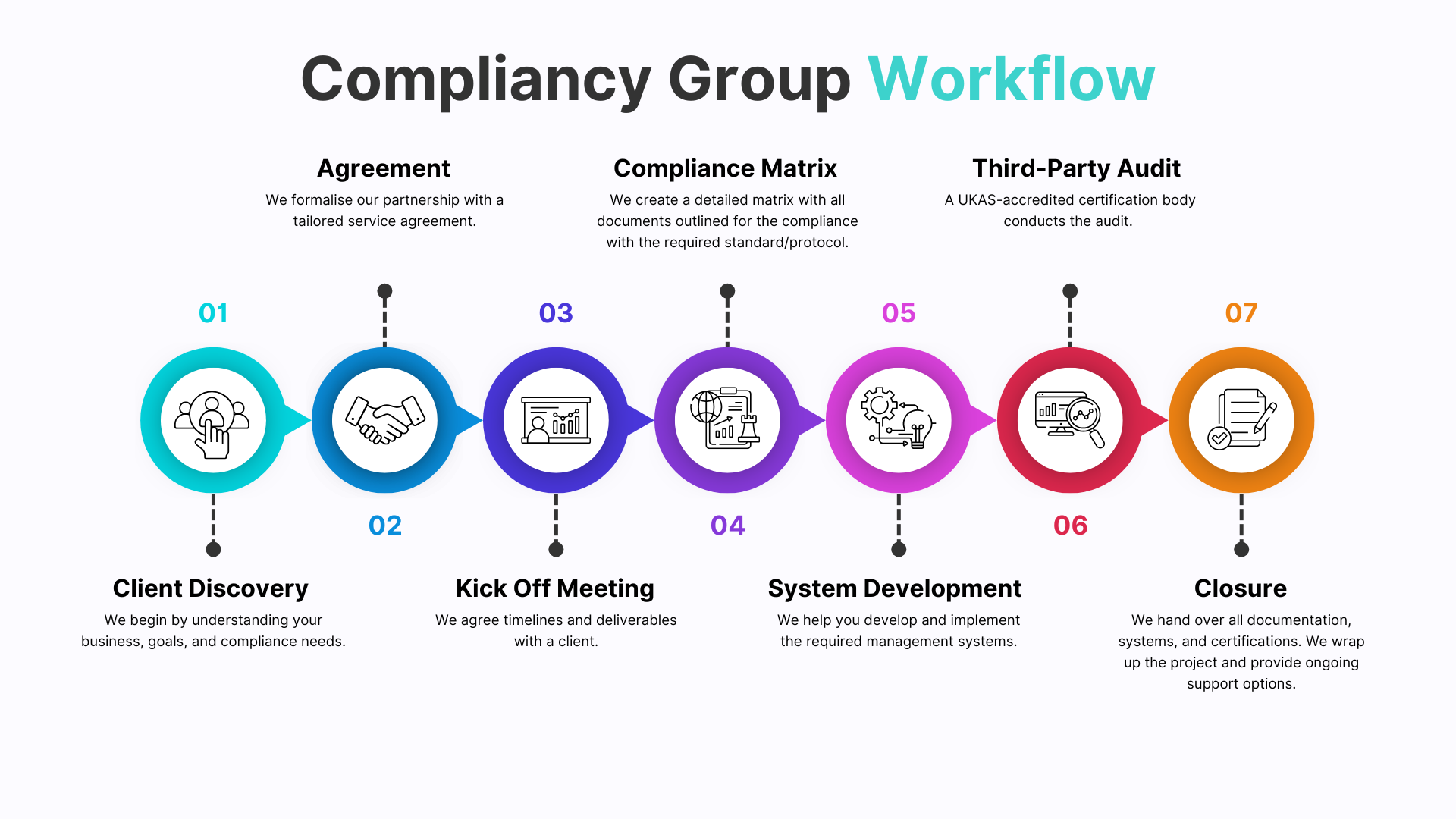We're Here To
Help
A Display Screen Equipment (DSE) Assessment is a vital inspection designed to ensure that employees who use computers, laptops, or other screen-based devices are working safely and comfortably. Conducting regular DSE assessments demonstrates your business’s commitment to employee wellbeing, legal compliance, and proactive risk management – trusted by clients, partners, and regulators across all sectors. By managing DSE risks, you reduce the likelihood of work-related injuries, improve productivity, and show that you value your team’s health. Compliancy Group guides you through every step – making DSE compliance clear, practical, and a genuine business advantage.
We understand the challenges of ensuring ergonomic safety and meeting DSE regulations. Our team brings hands-on experience with DSE risk assessments, workstation setup, and best practice guidance for all types of office environments.
No one-size-fits-all here. Whether you need initial DSE assessments, ongoing monitoring, employee training, or compliance advice, our services are fully customised to your operations. We offer flexible support packages—from essential guidance to comprehensive on-site consultancy.
We work exclusively with UKAS-accredited certification bodies and maintain a 100% pass rate for compliance assessments. Our clients trust us to deliver results that stand up to audit and regulatory scrutiny—helping you achieve, maintain, and leverage DSE compliance for business growth.
Compliance shouldn’t slow you down. We help you create safer, more comfortable workspaces, reduce risk, and improve productivity—so you can focus on your core business.
You’ll work directly with our expert team, including leadership involvement from our CEO. We pride ourselves on responsive communication, clear guidance, and ongoing support throughout your compliance journey.
Demonstrate compliance to secure contracts and reassure clients.
Show your commitment to employee health, safety, and legal responsibilities.
Minimise the risk of musculoskeletal disorders, eye strain, and related workplace injuries.
Enhance your standing as a responsible and caring employer.
Regular assessments and compliance checks foster a culture of ongoing safety and wellbeing.
Strengthen Reputation
From initial assessment to ongoing support, our team ensures you’re always prepared and confident.
We streamline compliance processes, freeing up your team to focus on core business activities.
Services are tailored to your specific business needs, not generic templates.
Ongoing support, training, and regulatory updates keep your business compliant long after assessment.
Our 100% compliance pass rate and exclusive partnerships with UKAS-accredited bodies mean you’re in safe hands.

A Display Screen Equipment (DSE) assessment is an evaluation of a workspace where screens are used, aiming to identify risks and recommend adjustments for a safe, healthy work environment.
DSE assessments should be done for new employees and refreshed at least every 12 months, or whenever desk setups change.
Examples include PCs, laptops, tablets, and smartphones.
Take short breaks often—5 to 10 minutes every hour is better than 20 minutes every 2 hours.
Yes, if workers use DSE daily for an hour or more, employers must do a workstation assessment covering equipment, furniture, and work conditions.
Employees must care for their own health and safety and avoid putting others at risk, including when working from home.
Employers are responsible for arranging DSE assessments and planning regular breaks to reduce tiredness and eye strain.
Exemptions include DSE on public transport, calculators, cash registers, traditional typewriters, and portable systems not used for long periods.
Employers must protect workers from health risks related to DSE, ensuring compliance with regulations for workers using DSE daily for an hour or more.